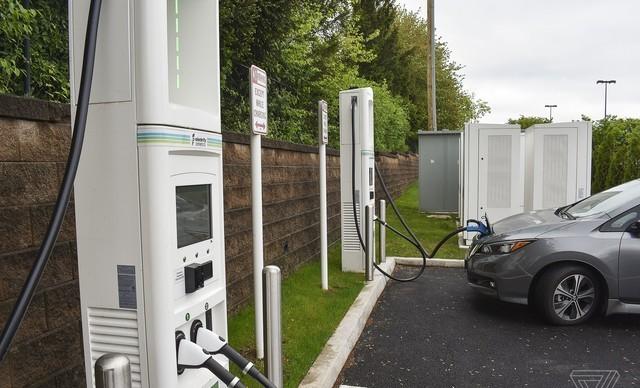The Biden administration announced a five-year, $5 billion plan to support a fragmented electric vehicle charging network across the country, using funds approved as part of a bipartisan infrastructure law signed last year.
These funds represent a broader effort by President Biden's administration to reduce carbon emissions and address human-caused climate change. Although sales of electric vehicles have risen over the past few years, at least 25% of all carbon emissions come from the transport sector, most of which is exhaust emissions.

Congress approved $7.5 billion for electric vehicle charging infrastructure as part of a bipartisan infrastructure law, of which $5 billion will be provided to states to establish "a network of electric vehicle charging stations along designated alternative fuel corridors, particularly along the interstate highway system," the administration said. According to the Federal Highway Administration, the Alternative Fuel Corridor includes approximately 165,722 miles of the national highway system, covering 49 states and the District of Columbia.
"Network of Electric Vehicle Charging Stations along Designated Alternative Fuel Corridors"
Under the plan, known as the National Electric Vehicle Infrastructure Formula Program, states must submit applications to the Joint Office of Energy and Transportation by Aug. 1. The Federal Highway Administration will approve the eligible program by September 30, providing $615 million in fiscal year 2022.
The government said a second competitive grant scheme "aimed at further increasing eviction charging lanes across the country, including rural and underserved communities," will be announced later this year.
"This will help ensure that the United States leads the world in electric vehicles," the president said in a speech earlier this week to promote U.S. companies to expand electric vehicle infrastructure in the United States. "So far, China has been leading the race, but that's about to change," Biden said. "Because the United States is building a convenient, reliable, and fair national public charging network." So no matter where you live, charging an electric car will be quick and easy. "
There are about 41,000 public charging stations in the United States with more than 100,000 outlets. But finding a charging station that really works or isn't locked in a gated parking lot can be a bit like a scavenger hunt.
The charging experience in the U.S. is very fragmented, especially for those who don't have a Tesla. While Tesla's network of supercharger stations has been praised for its seamless user experience and fast charging capabilities, for almost everyone else, the opposite seems.
Funds authorized for a nationwide network of electric vehicle chargers will have a measurable impact on Americans' choices to buy.
City policy and electrification experts say the funds authorized for a nationwide network of electric vehicle chargers will have a measurable impact on Americans' car buying choices. A more reliable charging network could help boost electric vehicle sales in the U.S. over the next decade.
Still, the type of charger under construction could raise questions about the government's desire to get Americans to quickly switch to electric cars. Not only does it take a while to build so many chargers, but most of the chargers that are built are likely to be "tier 2" and can replenish about 25 miles of battery capacity per hour. This means that U.S. eviction buyers will have to get used to the idea of drinking e-drinks while going out while doing most of the charging at home.
The infrastructure law does allow funds to be used for new DC fast charging stations. (But Tier 2 chargers cost much less to build and install, meaning the government can get more chargers for less money.) A Level 2 charger can get to the ground for just a few thousand dollars, while a 150kW-350kW fast charger could cost 50 to 100 times as much.
Biden also recently signed an executive order to swap the federal government's fleet for U.S.-made electric cars. The second part of his plan to spur mass adoption of electric vehicles is to offer generous tax breaks, which have stalled as part of the Build Back Better program.
(7865395)